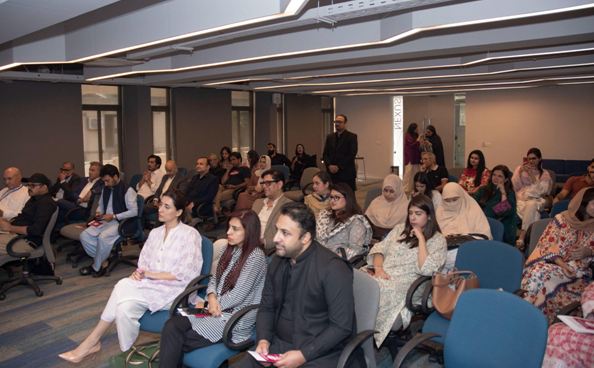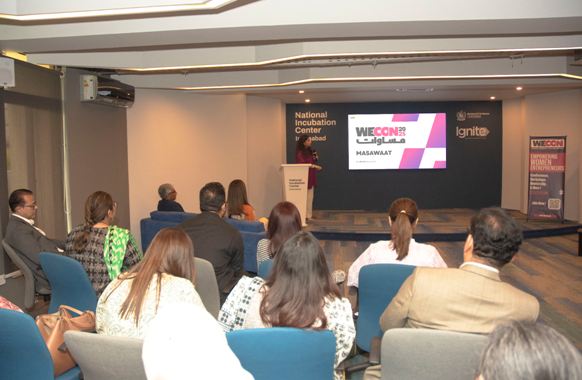ISLAMABAD, JUL 2 /DNA/ – In a landmark move toward gender-inclusive economic transformation, changemakers from government, industry, and innovation spaces came together for the launch of WECON Policy Recommendations Report; a comprehensive analysis of the systemic barriers that continue to exclude women from entrepreneurship and a roadmap for structural change.
Developed through extensive consultations with women entrepreneurs, ecosystem builders, and financial experts, the WECON 2025 Policy Recommendations Report (2025) builds on alarming data that highlights the deep-rooted gender gaps in Pakistan’s entrepreneurial landscape: 91% of women have never applied for a business loan, and women-led enterprises received only 3.2% of total SME financing in 2022. Despite comprising nearly half of the population, women account for less than 1% of formally recognized entrepreneurs; a reflection not just of inequality, but of a system never built with women in mind.
At the launch event, held on June 27th, 2025 at the National Incubation Center, Islamabad and attended by Senior representatives and experts from the public and private sector stakeholders including Ignite National Technology Fund, NAVTTC, World Bank, P@sha, TDAP, SIFC, PSW, RCCi, IWCCI, GIZ Pakistan, Hashoo Foundation, British Council, Mobilink Microfinance bank, Dubai Islamic Bank, VISA, NUST, Set Pakistan, Mashreq Bank, NUST, S&P global, Cybervision International; attendees reviewed findings and engaged in dialogue on actionable next steps. The discussion emphasized the urgency of moving from recognition to reform.
“It’s time for Pakistan to move beyond promises and start designing equitable policies that truly include women in the country’s economic future,” said Sayyed Ahmad Masud, Director, Change Mechanics Pvt. Ltd., the organization behind WECON.

The report outlines multiple key areas for reform including but not limited to: inclusive financial access through collateral-free loans; digital equity via subsidized internet, devices, and literacy programs; capacity-building tailored to women’s mobility and time; simplified & incentivized business registration in Urdu and mobile formats for women; Human (Women) Centered Design Approach for program development, and a centralized PORTAL to provide one-window access to funding, mentorship, legal aid, and learning.
Globally, women-founded startups receive less than 3% of total venture capital funding. In Pakistan, this gap is even wider due to limited networks, lack of visibility, and systemic underinvestment in women-led ventures. The report stresses that equity is not a side note it must be the foundation of all entrepreneurship policy going forward.
“We cannot afford to leave half the population on the sidelines, not morally, not economically. When women thrive, communities thrive, and so does the economy,” added Sayyed Ahmad Masud while addressing the audience. ‘The WECON 2025 Policy Report contributes to a broader and ongoing national conversation on inclusive economic and institutional development. Rather than existing in isolation, the report draws from lived experiences of stakeholders working at grassroots level , up to decision making leaders and field data to inform structural reform. It is intended as a resource for policymakers, financial institutions, and ecosystem stakeholders working to address the persistent underrepresentation of women in entrepreneurship. By offering targeted, evidence-based recommendations, the report seeks to support existing policy frameworks and inspire new approaches that center equity as a foundational principle to increase the number of women entrepreneurs in the country.

















